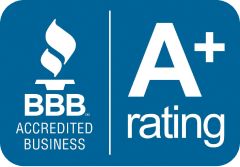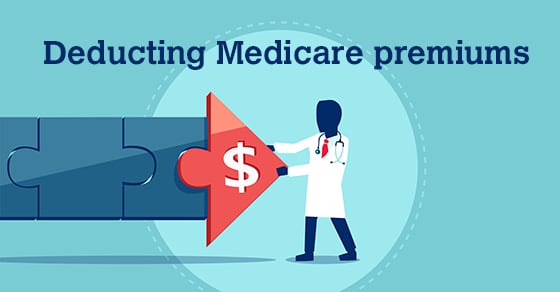Your options for lowering your Medicare premiums are numerous. For Part B, Part D, Medigap, vision, dental, and hearing insurance, almost everyone must pay a premium. Although the cost of all those premiums can add up, there are methods to cut costs whether you currently have Medicare or are enrolling for the first time. We’ll outline five strategies for you to lower your Medicare premiums below.
How to Reduce Your Medicare Premiums
How Do I Get Medicare Surcharges Reassessed?
Most people contribute to Medicare at a set rate. Due to an Income Related Monthly Adjustment Amount, taxpayers with high incomes must pay a higher amount (IRMAA). Medicare analyses two years prior to your current income for determining your IRMAA.
This means that the premium you pay is determined by your modified AGI from the previous two years. If your income decreases as a result of a significant life event, you can request that the Social Security Administration re-evaluate your premium. Retirement, divorce, and losing your spouse are a few examples of occurrences that might change your life.
How Can I Lower My Medicare Part B Premium?
Part B requires a premium from each person. There may be a premium reduction incorporated into some Medicare Advantage plans. You pay the remaining balance of the Part B premium after your policy pays its share. Your overall Medicare premium payments will be decreased if you have a Medicare Advantage plan with this choice.
How Do I Get a Medicare Low-Income Subsidy?
A lot of people are unaware that there is a subsidy to lower Part D premiums and out-of-pocket expenses for medication. Medicaid recipients are immediately eligible for the Extra Help subsidy.
Even if you are not eligible for Medicaid, you can still get Extra Help. A subsidy can lower Medicare premiums and other expenses if your income is modest.
Can I Deduct Medicare Premiums from My Taxes?
Some medical costs are deductible from your taxable income. The Parts B, D, and Medicare Advantage premiums you paid are considered deductible medical costs. There are restrictions on this deduction, though.
To itemise your deductions rather than take the standard deduction, you must first have a sufficient sum of deductions. Second, not all of your medical expenses are deductible. Only medical costs that surpass 10% of your adjusted gross income are eligible for a tax deduction.
Can I Use My HSA Funds to Pay My Medicare Premiums?
You can pay your Part B, Part D, or Medicare Advantage premiums with funds from a health savings account. An HSA cannot be used to cover Medigap premiums.
As long as you utilise the funds in your HSA for medical expenses, they are tax-free. Pre-tax dollars are always more affordable to use as payment than taxable monies.
5 Ways to Avoid Higher Premiums Before Enrolling in Medicare
Avoid Late Penalties by Signing Up When First Eligible
While not directly lowering Medicare rates, avoiding penalties does stop premiums from rising. Medicare enrollment is possible three months before the month in which you turn 65. After that, your initial enrollment period lasts for seven months. A financial incentive exists for enrolling at that time.
In general, there is a late registration fee if you delay to enrol in Part B. The penalty will be paid every month for the remainder of your life. If you don’t sign up for a prescription plan when you first become eligible, you also risk paying a late enrollment fee.
Understand what Creditable Coverage Is
If you have creditable health insurance coverage from another source, you are not subject to a penalty if you enrol in Medicare and a prescription plan after your Initial Enrollment Period.
Typically, this denotes that you have coverage through your own employer-sponsored plan or that of your spouse. Some people put off signing up for Medicare because they already have more affordable or beneficial insurance. These benefits won’t matter if you have to pay a late enrollment penalty because your plan doesn’t qualify as “creditable coverage.”
Know the Different Enrollment Periods
Knowing when you can sign up for Medicare and when you can switch plans will help you better manage your premium payments. The ideal time to enrol in Parts B and D in order to avoid the late enrollment penalty is during your Initial Enrollment Period.
You get a single chance to sign up for a Medigap plan without having to answer any health-related questions as soon as your Part B coverage begins. Your premium may increase if you attempt to enrol in a Medigap plan at a later date due to health concerns. Additionally, there are yearly opportunities to modify your Part D or Advantage coverage. These allow you the chance to weigh your options and select the one with the best price.
Contribute to Workplace Retirement Accounts
Workplace retirement plans let you make contributions while you’re still employed and use those funds to cover expenses after retirement. It won’t cut your premiums to have money in a retirement account. However, it will enable you to pay for your other living expenditures as well as healthcare charges. When you have more money saved for retirement, it will feel like your Medicare premiums are being reduced.
Maximize Your Tax-Free Income
When you make a contribution to a Roth IRA or 401K, you must pay taxes on the amount. However, your income is tax-free. A standard IRA or 401K may occasionally be converted to a Roth account. If you contribute to a health savings account, your contributions AND the income from them aren’t taxed as long as you use them for healthcare.
You save money by paying premiums using tax-free money. It is best to seek professional guidance about how to increase your income tax-free. The plans that are offered in your area and Medicare regulations both change annually. It makes sound financial sense to speak with a representative each year to examine your possibilities.








